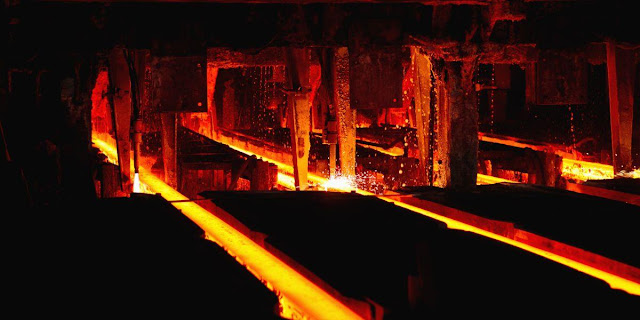What are the benefits of using millwright services?
Millwrights offer a number of benefits. At STEVENS, we deliver industrial turnkey millwright services for repair, installation, upgrade, overhaul, and maintenance of industrial reciprocating rotating machinery. Our experienced millwrights can offer you and your company with a number of benefits that will help you take your business to the next level.
Let's look at some of the benefits our millwright services provide.
- Optimizing Equipment Performance: Millwrights play a critical role in optimizing the performance of machinery and equipment in steel mills. They are trained to ensure that all equipment is properly aligned, calibrated, and fine-tuned for maximum efficiency. This attention to detail helps the equipment operate at its peak, reducing energy consumption and waste.
- Maintenance Scheduling: Regular maintenance is key to preventing unexpected breakdowns and disruptions in steel mill operations. Millwrights are responsible for creating and implementing maintenance schedules that include routine inspections, lubrication, and component replacements. By adhering to these schedules, millwrights extend the lifespan of machinery and reduce the chances of costly downtime.
- Precision Machining: Precision is essential in steel manufacturing. Millwrights are skilled in precision machining, which involves making precise adjustments to machinery to achieve the desired product specifications. Whether it's calibrating the dimensions of rolled steel or ensuring the proper thickness of steel sheets, millwrights play a pivotal role in maintaining product quality and consistency.
- Minimizing Material Waste: Efficiency in steel mills also relates to the reduction of material waste. Millwrights help ensure that equipment is set up correctly, reducing the likelihood of defects in the final product. They work to minimize scrap by fine-tuning processes and equipment to meet exacting standards, ultimately saving both raw materials and costs.
- Energy Efficiency: Energy consumption is a significant cost factor in steel production. Millwrights contribute to energy efficiency by optimizing equipment and systems. This may involve installing energy-saving components, such as more efficient motors or improved insulation. By reducing energy consumption, steel mills not only save money but also contribute to sustainability efforts.
- Process Improvement: Millwrights are often involved in continuous improvement initiatives within steel mills. They collaborate with engineers and other professionals to identify areas where processes can be streamlined and optimized. Through their expertise, they implement changes that result in increased throughput, reduced cycle times, and improved overall productivity.
- Adapting to Market Demands: In a competitive market, steel mills must be agile and responsive to changing customer demands. Millwrights assist in adapting equipment and production processes to meet these evolving requirements. Whether it involves reconfiguring machinery for different product specifications or expanding production capacity, millwrights are crucial in ensuring the mill's ability to stay competitive.

No comments:
Post a Comment